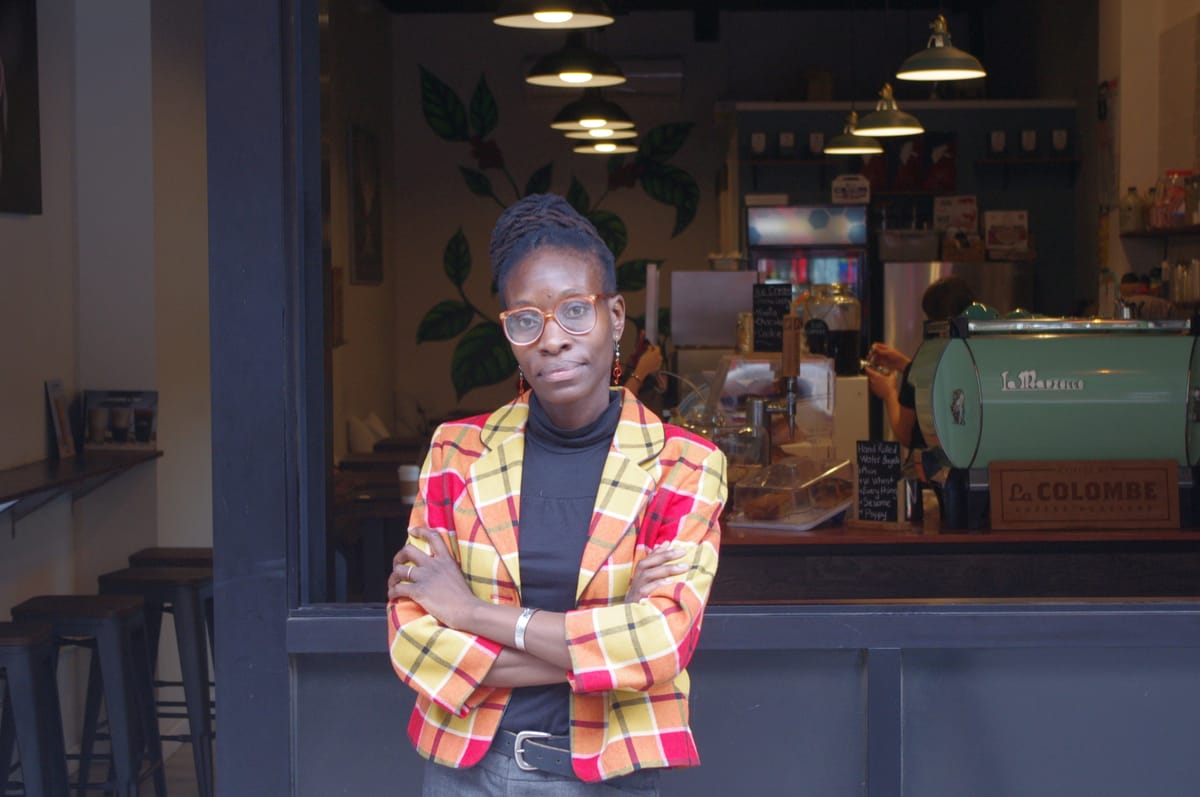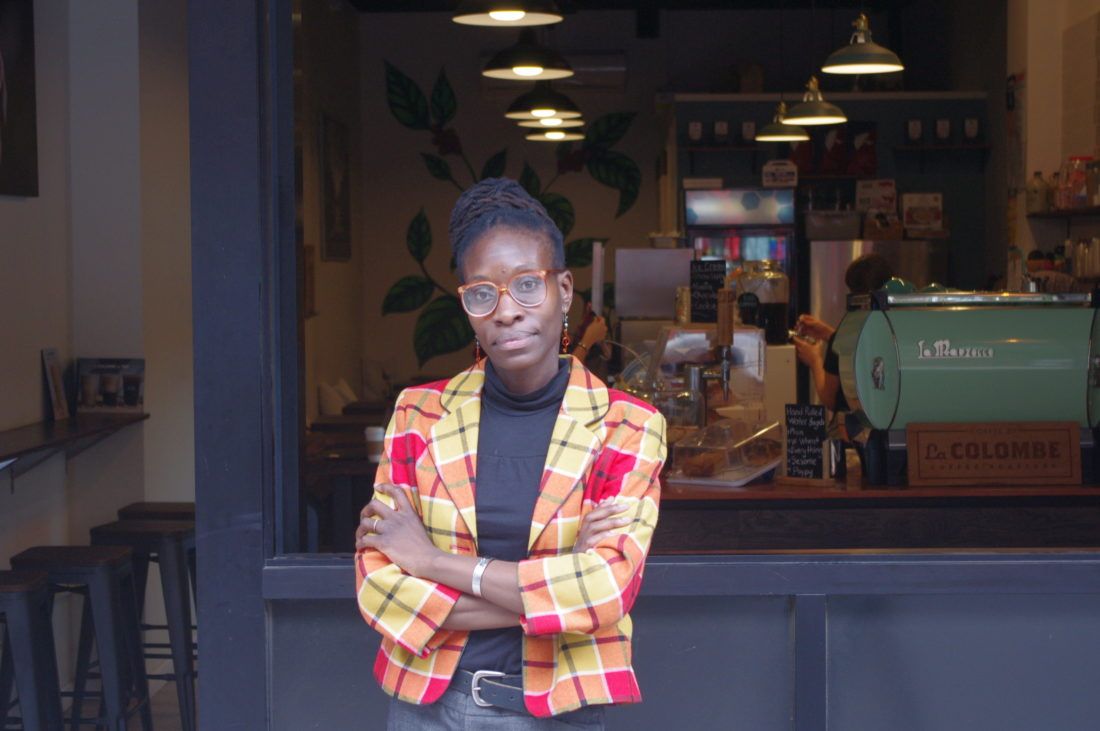Meet the 6th Municipal District Candidates For Civil Court Judge: Chinyelu Udoh


Last week, we interviewed Caroline Cohen about her bid for the 6th Municipal District Civil Court judge race. Today, we have an interview with another candidate in the four-way race: Chinyelu Udoh. The election, which also features Alice Nicholson and Tehilah Berman is on June 25.
The district includes Crown Heights, Prospect Heights, Park Slope, Flatbush, Prospect Lefferts Gardens, Ditmas Park, Kensington, and parts of Midwood, so if you live in any of those neighborhoods, remember to vote and stay tuned for more coverage of the race.
Udoh, 43, was born in Los Angeles, went to Northwestern University, and moved to New York City to attend Pace Law School, graduating from there in 2000. After law school, Udoh clerked for a civil matrimonial judge at New York State Supreme Court in The Bronx for roughly a year, and subsequently worked at the Legal Aid Society’s criminal defense division for seven years.
Udoh— who lives in Bed-Stuy, which is outside the 6th Municipal District— then returned to the court system, clerking for a family law judge La Tia Martin in Supreme Court for about two years. In 2011, Udoh began working for Civil Court Judge Carol Feinman, for whom she currently works.
Udoh, 43, is endorsed by Assemblywoman Jo Anne Simon, former Assembly member Joane Millman, Assembly Member Nick Perry, and City Council candidate for the 45th district Monique Chandler-Waterman, as well as the Independent Neighborhood Democrats and Central Brooklyn Independent Democrats.
“I decided to run when I learned that the seat was going to become available, and I thought this really was an opportunity for me to take a chance on what may be out there for me,” she told Bklyner on Friday.
This interview has been edited for length and clarity.
Bklyner: Why did you decide to run?
Udoh: It’s been really an amazing journey for me, just being an attorney and being someone who will always put myself in the position to fight for people’s rights. It’s just something I’ve always wanted to do. I knew when I was younger, when I went to law school, that I wanted to be a civil rights attorney, constitutional law attorney and really just protect people’s rights. I didn’t realize how it would manifest itself over the years, but I’m really hoping that it has manifested itself in the form of being a criminal defense attorney, and more specifically a criminal defender at the Legal Aid Society.
To me, that was a really big honor to be able to work for Legal Aid. I’m really proud of that. It’s one of the best organizations, I think, in the country when it comes to defending the rights of people when they are arrested, and I think my transition into the court system was just another wonderful experience. I never knew at that time that I was going to have an opportunity to actually clerk and work for a judge.
That experience … made me look at things in a different fashion and different manner, in terms of practice of law and that’s what really put me in the mindset of ‘I would really love to obtain the highest honor in the legal industry, which I believe is actually being a judge, just because of the obligation that it carries.’
I really believe that I am ready. Just in terms of that work that I have done over the years, and the current work that I do right now, being with the judge that I am, in terms of day in and day out making sure that cases are decided fairly and justly and even people who are litigants and don’t have representation they are still able to advocate for themselves, that they are still able to be heard and feel as if they’ve been heard, and that’s just become something that is extremely important to me, to know and to see when people feel as if, when they come into the court, even if they may not get everything that they want, that they feel satisfied with how that mattered was handled by the court. And that’s just been something that is fascinating, wonderful and humbling, and it would be an honor to aspire to the bench on this journey that I’m on.
Bklyner: Why do you feel you are the most qualified candidate?
Udoh: I definitely believe that I am the most qualified candidate, because I have the most vast breadth and depth of experience, I have practiced and worked in almost every jurisdiction within the courts, so if I were to aspire to the bench I don’t need to be trained as to how to be a judge. I already have that experience, especially since I work side by side with the judge. I don’t need to be trained to work in criminal court, I don’t need to be trained to work in family court and I definitely don’t need to be trained to go into civil court handling any of the divisions within the civil court practice, because I’m doing it already.
Bklyner: What did you learn as a lawyer, and how would you apply that experience as a judge?
Udoh: So being a lawyer and being a litigator is extremely different from being a judge and I really feel that I have been able to master the actual difference. When you’re a lawyer, you’re advocating for someone. You are really working on a particular client’s case. You’re advocating for them zealously, that’s your position, that’s what you take. … You’re protecting your clients interest and that’s always first and foremost in your mind when you’re practicing.
That cannot be in the same fashion as when you’re actually a judge. You are required to hear both sides equally, hear both sides fairly, take in everything that you hear and really hand out decision applying the law, regardless of whether it’s going to be in favor of one person or not that really shouldn’t be, and is not in any way, the impetus behind how a judge makes a decision. The only impetus behind how a judge makes a decision is applying the facts given in that case to the law and making sure you’re able to decipher what those actual facts are, versus the opinions of the respective client. There is definitely a difference with how you have to look at things.
Bklyner: What is you day-to-day schedule like? What are you doing on a day-to-day basis?
Udoh: Currently, my judge and I work in a resolution part, and more specifically, we handle lots of Supreme Court trials. We have an average of maybe seven to eight cases per day, and we are working on each of those cases separately, conferencing them, getting them to a point where trial has to happen, or if not a trial, a settlement that the parties have agreed to come together and working something else on.
And we really are the mediators with that. We encourage conversation between both sides to work it out. We always say, ‘Listen, if you are in a position to work this out, maybe it’s better, because at least at least all sides have a say in what the ultimate outcome is going to be,’ versus having a trial and having that judgement be made by a judge, who has heard the case, who may not know all the specifics about the person’s lives and how long they’ve been fighting these cases.
Sometimes, the cases that we get are 15, 16, 17 years old, and when we get these cases and we have to take them to trial, we realize that the individuals who are going to be litigating these cases that it’s important to them or else they wouldn’t have been litigating them for 15, 16, 17 years, but at the same time we are only required to hear the facts of that case, understand what’s going on and make the decision and that may not be a decision where any of the litigants may like, so we try to get them to say “Listen, work it out amongst yourselves, we want to give you that opportunity to work it out amongst yourselves, because at least you know what the outcome is going to be,” versus putting it in the hands of the judge.
Bklyner: What’s the most interesting case you’ve worked on?
Udoh: Without going specifically into names and details, we’ve worked on a few high-profile commercial real estate matters, where large firms have been going back and forth with property. We know that, right now, development is a big issue within New York City, and so issues around resolving matters when it comes to commercial properties and ownership and contracts and things of that sort it’s just be really pervasive. And we’ve noticed that a lot of the matters really end up focusing around businesses and breach of contract matters just the way the economy is these days. Sometimes things aren’t always fulfilled in the same manner anymore.
We are currently dealing with a couple of really interesting, intricate cases that require the partitioning of properties and that, to me, is a very, how would I put it, delicate situation, because partitioning can become really complicated in this day and age when we’re talking about development and who owns the property and then when you go into talking about more specifically who want specific parts of the property and if we handle a matter such as partition, for example, where a property has to be partitioned, how will that affect everyone who has a piece of ownership in it when partitioning happens and one side wants it to be developed and another side who has a small portion is not interested in developing, how do you resolve those issues? So there are sometimes some public policy matters that start to come into how decisions must be made these days, so we have to handle them with a delicate hand.
Bklyner: Is it going to be a problem for you that you don’t live within the district?
Udoh: Well, it’s not a problem at all, in fact it’s not a requirement that you have to live in the district.
Bklyner: Politically, though.
Udoh: I don’t think politics should be involved when it comes to whether or not a judge is qualified to sit on the bench. I think that people have to understand that once a judge aspires to the bench, you’re going to be handling cases with litigants who come from all corners of Brooklyn, so regardless of what district seat you run in, you will be representing and being a public servant for every litigant who comes into court from all of New York City.
There are several people who have run in Brooklyn for [Brooklyn] seats and have won. It’s nothing new to not necessarily live in the district. But more importantly, I do live in central Brooklyn and I have been active in the Brooklyn community, specifically within that 6th Judicial District. I have for years, the past 10, 12 years, been hosting lots of landlord-tenant forums. I was doing that 10 years ago, before there was a discussion about housing and landlord and tenant matters. I’ve been active in numerous organizations that do work and community service in the 6th Municipal District, which I think is even more important than political organizations.
Bklyner: Do you have any pets?
Udoh: No.
Bklyner: Favorite restaurant within the 6th Municipal District?
Udoh: Shane’s on Washington.



